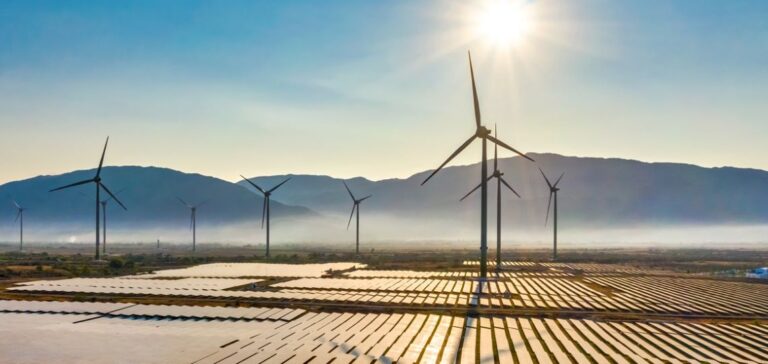Vietnam’s Deputy Prime Minister Tran Hong Ha has approved the National Energy Master Plan for 2021-2030. The plan focuses on energy security and stability of supply. It follows the approval of PDP 8 and the National Oil and Gas Infrastructure Plan.
Vietnam’s energy plan aims for self-sufficiency and sustainable economic growth
The master plan, published on July 26, covers the production and supply of natural gas, coal, oil and renewable energies, with considerable emphasis on increasing national production to achieve self-sufficiency. It forecasts energy supply for average annual economic growth of 7% from 2021 to 2030, and 6.5% to 7.5% from 2031 to 2050. Key objectives of the plan include the commissioning of two major upstream gas projects by 2030. Then measures to achieve Vietnam’s goal of zero net emissions by 2050. Finally, a high temporary dependence on coal production.
The coal and gas trade flows in Vietnam’s master plan target domestic natural gas production of 5.5 to 15 billion cubic meters per year by 2030, rising to 10 to 15 billion cubic meters per year by 2050. Vietnam’s gas production has risen by 8.3% year-on-year to reach 8.08 billion cubic meters in 2022, according to state-owned PetroVietnam. The broad target is mainly explained by the uncertainty surrounding two major upstream gas projects, Block B and Ca Voi Xanh, which are the focus of the master plan to ensure energy security.
Controlled growth: Son My LNG project at the heart of Vietnam’s energy plan
Vietnam’s Block B project, with a capacity of 6.4 billion cubic meters per year, is scheduled for completion in 2027, while the Ca Voi Xanh project, with a capacity of 7 to 9 billion cubic meters per year, is scheduled for 2030. If delivered on time, they will significantly reduce dependence on LNG imports. The master plan favors LNG import terminals and regional supplies from Malaysia, Indonesia and Brunei. The capacity of the Thi Vai terminal will be tripled to 3 million tonnes per year after 2025.
The first phase of the Son My LNG terminal, with a capacity of 3.6 million tonnes per year, is scheduled for completion in 2026-2027. Vietnam’s LNG import capacity is expected to reach 15.7 billion to 18.2 billion cubic meters (equivalent to 11.4 million to 13.2 million tonnes per year of LNG) by 2030. It will then fall to 10.6 billion to 12.2 billion cubic metres per year (equivalent to 7.7 million to 8.8 million tonnes per year) in 2050.
This confirms LNG’s role as a transitional fuel. The gas market will reach 30.7 to 33.2 billion cubic meters/year in 2030, then 20 to 22 billion in 2050. Coal production will gradually decline to 33 million tonnes/year by 2050.
The Red River delta, a coal goldmine: Vietnam exploits its coal potential
This means an increase in the next few years, as Vietnam produced 39.4 million tons of coal in 2022, according to Vietnam National Coal Mineral Industries Holding, or Vinacomin, the main state coal producer. The master plan aims to exploit the Red River coalfield by 2040 and produce on a large scale. The basin in the Red River delta extends over 3,500 km² across the four northern provinces of Thai Binh, Hung Yen, Nam Dinh and Phu Tho.
Coal reserves are estimated at 210 billion tonnes, according to Vinacomin in 2015. The plan aims to import 73 million tonnes of coal in 2030, peaking at 85 million tonnes in 2035, then declining to 50 million tonnes by 2045. This points to a sharp increase in coal imports, as Vietnam is set to import 13.2 million tonnes in 2023, according to state media citing the government. Vietnam also plans to export between 2 and 3 million tonnes of coal over the period 2021-2030.
Innovative energy plan: Vietnam focuses on wind, solar and hydro power
By 2050, Vietnam will cease to import coal due to the growth of thermal power plants. The master plan aims to achieve 15%-20% renewable energy by 2030 and 80%-85% by 2050.Vietnam’s greenhouse gas emissions will reach around 399 million-449 million tonnes in 2030 and decrease to 101 million tonnes in 2050. The master plan aims to reduce greenhouse gas emissions by 17%-26% by 2030, and by around 90% by 2050, compared with the normal development scenario. Peak emissions are expected to be reached by 2030, and this will depend on funding from the Partnership for a Just Energy Transition. This partnership will play a key role in supporting Vietnam’s efforts to transition to a more sustainable and environmentally-friendly energy future.
By 2030, Vietnam is aiming for 30.9%-39.2% renewables in electricity generation, rising to at least 47% with sufficient JETP funding. In addition, the country plans to build two renewable energy hubs in the northern, central or southern regions, with the aim of exporting 5,000 to 10,000 MW of renewable energy by that date. By 2050, the share of renewable energies will have risen to 67.5%-71.5%, in line with PDP 8.
Volatile LNG prices: Vietnam seeks to regulate liquefied natural gas imports
Vietnam plans to produce 100,000 to 200,000 tonnes/year of green hydrogen by 2030, rising to 10 to 20 million tonnes/year by 2050. The master plan targets CCUS (Carbon Capture, Storage and Utilization) capacity in industry and power plants of around 1 million tonnes/year by 2040, rising to 3-6 million tonnes/year by 2050.
Volatile LNG prices on the spot market have Vietnamese market players worried. They suggest the need for a regulatory framework to regulate LNG imports. The first LNG cargo arrived at PV Gas’ Thi Vai terminal on July 10, supplied by Shell from Indonesia.
According to S&P Global Commodity Insights data, Platts valued the July JKM average at $9.584/MMBtu.






















